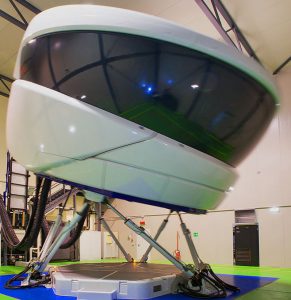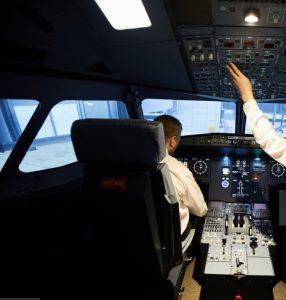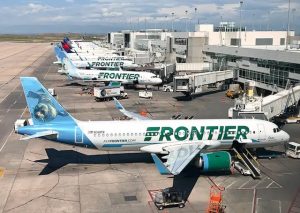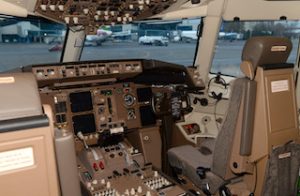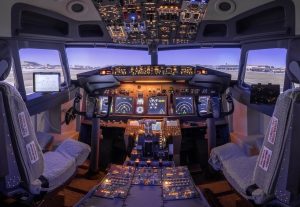Curriculum Of Top Colleges For Aviation
 When it comes to pursuing a career in aviation, choosing the right school is paramount. The curriculum offered by flying schools plays a critical role in shaping the skills and knowledge of future pilots and aviation professionals. In this article, we will explore the curriculum offered by the top colleges for aviation, highlighting essential courses, training methods, and unique opportunities that set these institutions apart.
When it comes to pursuing a career in aviation, choosing the right school is paramount. The curriculum offered by flying schools plays a critical role in shaping the skills and knowledge of future pilots and aviation professionals. In this article, we will explore the curriculum offered by the top colleges for aviation, highlighting essential courses, training methods, and unique opportunities that set these institutions apart.
Importance of curriculum in top colleges for aviation
The aviation industry is complex and requires top colleges for aviation a robust educational foundation. A well-structured curriculum equips students with the necessary skills to handle the challenges they will face as pilots or aviation professionals. The best flying schools ensure their programs are comprehensive, combining theoretical knowledge with practical experience.
Key components of an aviation curriculum
- Ground school instruction: Ground school is essential for understanding the theoretical aspects of aviation. It covers subjects such as aerodynamics, navigation, meteorology, and aviation regulations. This foundational knowledge prepares students for flight training and helps them understand the principles behind flight operations.
- Flight training: Practical flight training is a critical component of any aviation curriculum. Students engage in hands-on flight instruction with certified flight instructors using actual aircraft and flight simulators. This experience allows students to apply what they’ve learned in ground school and develop the necessary skills for safe flying.
- Simulator training: Flight simulators provide a safe environment for students to practice manoeuvres and emergency procedures without the risks associated with real flying. Many top colleges for aviation invest in advanced simulators that replicate the experience of flying various aircraft.
- Aviation safety and human factors: Safety is paramount in aviation, and the curriculum must address safety protocols and human factors affecting pilot performance. Courses on risk management, decision-making, and crew resource management are essential for cultivating a safety-oriented mindset.
- Regulatory and compliance training: Understanding the legal framework governing aviation operations is crucial for any aviation professional. Courses that cover Federal aviation administration regulations, international aviation law, and airport operations ensure students are well-versed in compliance issues.
Curriculum Breakdown
Core courses
The following core courses are typically included in the curriculum of the top colleges for aviation:
- Private pilot ground school: This foundational course covers the basics of flying, including flight rules, navigation, and aircraft operations. It prepares students for the private pilot license written exam.
- Aerodynamics: Understanding the principles of aerodynamics is crucial for pilots. This course examines the forces acting on an aircraft and how design affects performance.
- Meteorology: Weather plays a significant role in aviation safety. Students learn to interpret weather reports, understand atmospheric phenomena, and make informed decisions based on weather conditions.
- Aircraft systems: This course focuses on the mechanical and electronic systems of aircraft, including engines, navigation systems, and avionics. A solid understanding of these systems is essential for effective flight operations.
- Navigation: Effective navigation is vital for successful flight. This course covers various navigation techniques, including pilotage, dead reckoning, and instrument navigation.
Specialised courses
In addition to core courses, many top colleges for aviation offer specialized courses that allow students to focus on specific areas of interest. These may include:
- Commercial pilot license preparation: This course prepares students for the CPL written and practical exams, focusing on advanced flight manoeuvres and regulations.
- Instrument rating: An instrument rating allows pilots to fly in various weather conditions. This course teaches students to operate aircraft solely by reference to instruments, emphasizing safety and navigation.
- Flight instructor training: Aspiring flight instructors can take specialised courses that prepare them to teach others how to fly. These courses cover instructional techniques, lesson planning, and student assessment.
- Aviation management: For those interested in the business side of aviation, courses in aviation management cover topics such as airport operations, airline management, and aviation law.
- Unmanned aerial systems: With the growing use of drones in various industries, many aviation programs now offer courses on UAS operations, regulations, and technology.
Practical training opportunities
Flight hours requirements: To obtain a pilot’s license, students must log a specific number of flight hours, which can vary based on the type of license. The best flying schools offer structured flight training programs that ensure students meet these requirements while gaining practical experience.
Internships and industry partnerships: Many top colleges for aviation have established partnerships with airlines, flight schools, and aviation organisations. These partnerships provide students with opportunities for internships, job placements, and networking, enhancing their education and career prospects.
Capstone Projects and Flight Simulations: Capstone projects allow students to apply their knowledge in real-world scenarios. Additionally, flight simulations are used to replicate various flight conditions and emergency situations, helping students hone their decision-making skills.
Advantages of attending top colleges for aviation
Experienced faculty: The significant benefit of attending a top aviation college is the opportunity to learn from experienced faculty members. Many instructors are former airline pilots or aviation professionals with extensive industry experience, providing valuable insights and mentorship.
Advanced training facilities: The best aviation colleges invest in state-of-the-art training facilities, including modern aircraft, advanced simulators, and comprehensive maintenance labs. Access to these resources enhances the learning experience and prepares students for the demands of the industry.
Strong alumni networks: A robust alumni network can be a significant asset for students. Many top colleges for aviation have successful graduates working in various aviation sectors. These connections can provide job opportunities, mentorship, and industry insights.
Comprehensive career services: Career services play a crucial role in helping students transition from education to employment. Top colleges often offer career counselling, resume workshops, and job fairs specifically tailored for aviation students, ensuring they are well-prepared for the job market.
Choosing the right aviation program
Selecting the right aviation program is a vital step in pursuing a successful career in aviation. The curriculum offered by the top colleges for aviation is designed to provide students with a comprehensive education that balances theoretical knowledge and practical skills.
From foundational courses in aerodynamics and meteorology to specialized training in aviation management and flight instruction, these programs prepare students for the complexities of the aviation industry. By choosing a college with a strong curriculum, experienced faculty, and industry connections, aspiring pilots and aviation professionals can set themselves on the path to success.
As you embark on your journey in aviation, take the time to research and evaluate the programs offered by various institutions. With dedication and the right education, you can soar to new heights in your aviation career. The best colleges for aviation are ready to equip you with the skills and knowledge needed to navigate the skies confidently.

